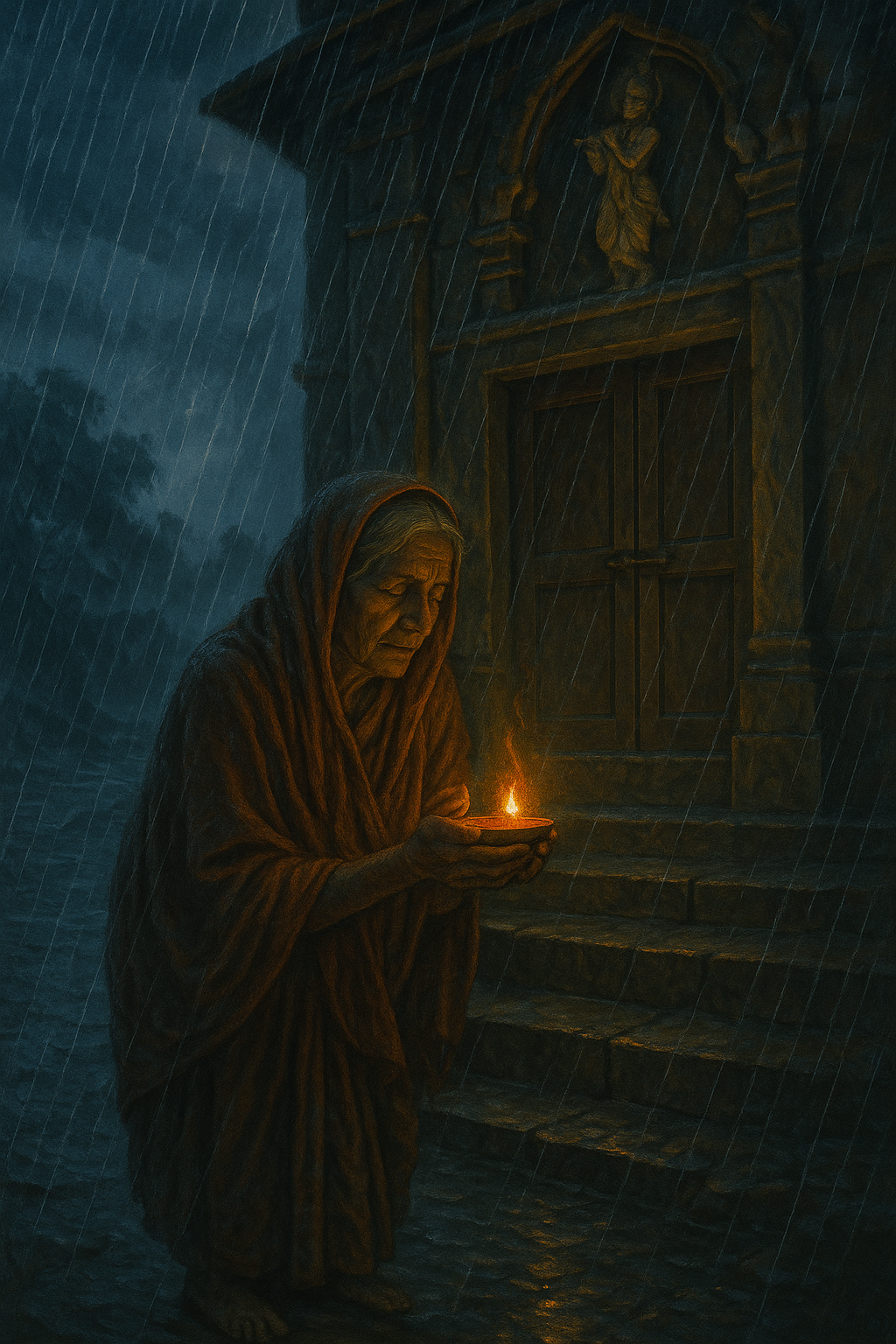The Story of the Lamp
Mālīnī was an elderly widow who lived in a small village near a river. She had no family, no wealth, and no possessions apart from her devotion to Lord Kṛṣṇa. Every evening, just before sunset, she would walk slowly to the local temple with a small clay lamp in her hands. She had saved a few drops of ghee from her kitchen and used it to light the lamp. This was her daily offering.
She never missed a single evening, no matter the weather. Whether it was raining, cold, or too hot, she walked to the temple and placed the lamp on the altar. She would bow before the deity and say, “O Lord, this is all I can offer. Please accept it.”
Most villagers didn’t pay attention to her. Some even made fun of her tiny offering. “What difference does that drop of ghee make?” they would say. But Mālīnī continued her simple service quietly, without seeking anyone’s praise.
One year, during the monsoon, heavy rains began to fall. The river swelled and threatened to flood the entire village. People became frightened. The winds were fierce, lightning struck nearby trees, and the temple priest locked the doors, thinking the storm might damage the building.
That night, Mālīnī still came to the temple. The door was locked, so she stood outside, sheltered her lamp with her palms, and placed it on the temple steps. She folded her hands and offered her usual prayer, even as the storm raged around her.
That night, the temple priest had a dream. In the dream, Lord Kṛṣṇa appeared and said, “You were afraid of the storm and closed My doors. But Mālīnī did not close her heart. Her lamp of love protected this village. I have kept the floodwaters back for the sake of her devotion.”
The priest woke up trembling. When he rushed to the temple, he found Mālīnī’s body lying peacefully near the steps, her lamp still burning beside her. She had passed away sometime during the night.
From that day on, the entire village began lighting lamps in the evening. Not because they feared floods, but because they had seen with their own eyes what pure, simple devotion could do.
Lessons:
- The smallest offering made with love carries great spiritual power.
- The Lord sees the heart, not the size of the offering.
- True devotion is consistent, quiet, and selfless.
“If one offers Me with love and devotion a leaf, a flower, a fruit, or water, I accept it.”
— Bhagavad-gītā 9.26
📚 Source: Inspired by themes found in A Brief Introduction to Bhakti and Least But Not Last: A Few Words on Humility, from The Agni and the Ecstasy by Steven J. Rosen (Satyaraja Dāsa).



